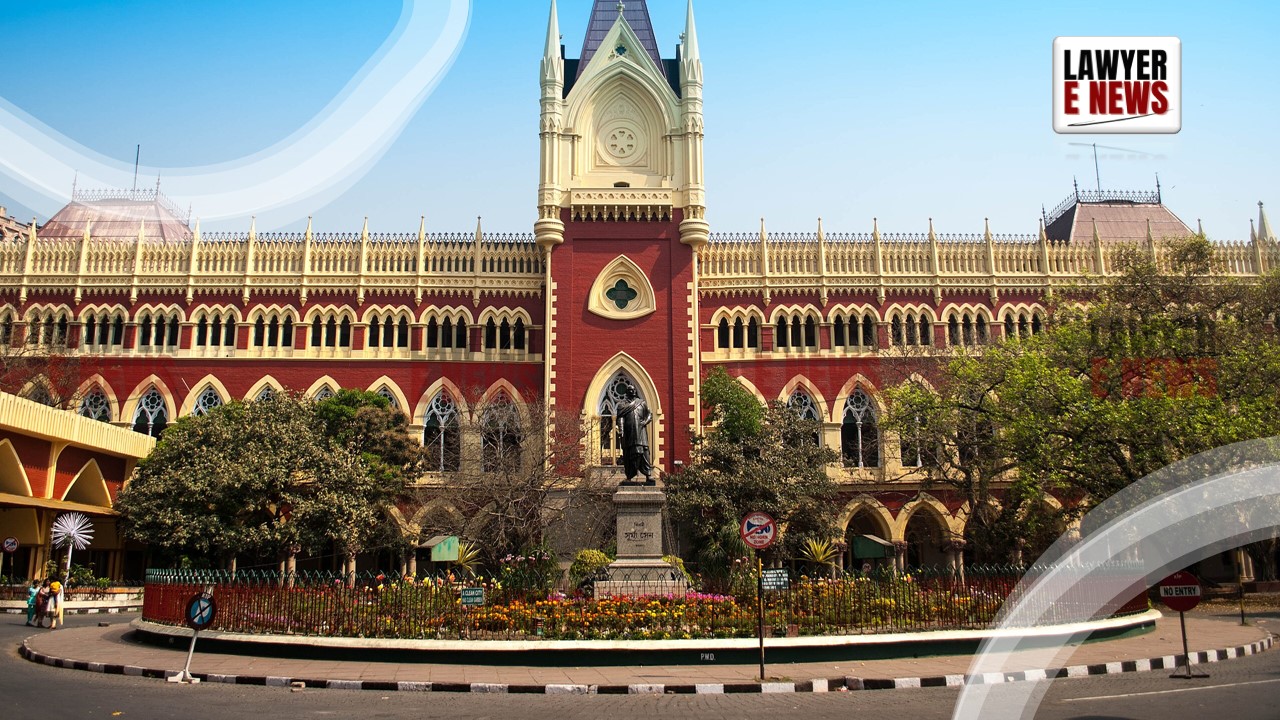-
by Admin
15 February 2026 5:35 AM



Calcutta High Court delivered a significant ruling in the case of Principal Commissioner of Income Tax – 1 Kolkata vs. Bothra Shipping Services Private Limited. The court dismissed the appeals by the Revenue and upheld the decision of the Income Tax Appellate Tribunal (ITAT), affirming Bothra Shipping's entitlement to a deduction under Section 80IA(4) of the Income Tax Act, 1961 for developing a mechanised coal-handling system at Kakinada Deep Water Port. This decision is expected to have a broad impact on how deductions for infrastructure projects are interpreted under Indian tax laws.
Bothra Shipping Services Pvt. Ltd. entered into an agreement with Kakinada Sea Port Limited (KSPL) in 2012 to develop an 8 MMTPA Mechanised Port Handling System for unloading and rail dispatch at berth no. 5 in Kakinada Deep Water Port. KSPL itself was a nodal agency created by the Government of Andhra Pradesh under an earlier concession agreement with International Sea Ports Limited (ISPL). Bothra Shipping claimed tax deductions under Section 80IA(4), which allows deductions for enterprises developing infrastructure facilities.
The Assessing Officer, however, disallowed the deductions, contending that Bothra Shipping had no direct agreement with the Government of Andhra Pradesh and failed to meet statutory conditions. The case was elevated to the Dispute Resolution Panel (DRP), which upheld the disallowance. Bothra Shipping then appealed to the ITAT, which ruled in their favor. The Revenue's appeal against this ruling was heard by the High Court.
The core issue was whether Bothra Shipping met the eligibility criteria for deductions under Section 80IA(4). Specifically, it centered on whether the absence of a direct agreement between Bothra Shipping and the Government precluded them from claiming deductions.
The Revenue argued that Section 80IA(4) required a strict interpretation of the law, necessitating a direct agreement with a government body, which Bothra Shipping did not have. Instead, Bothra Shipping’s agreement was with KSPL, a private entity.
Bothra Shipping, on the other hand, argued that their agreement with KSPL flowed directly from KSPL’s concession agreement with the Government of Andhra Pradesh and should be viewed as a sub-agreement under the parent concession.
The High Court emphasized that Section 80IA(4) was intended to promote infrastructure development and that denying the deduction to an entity involved in genuine infrastructure development on technical grounds would frustrate the law’s objective. The court cited the case of CIT vs. Ranjit Projects Pvt. Ltd., which held that a rigid interpretation could deprive deserving enterprises of tax benefits. The court found that KSPL was acting as a "nodal agency" for the government, and Bothra Shipping’s agreement with KSPL should be seen as fulfilling the statutory requirements.
"The intent of the Legislature behind Section 80IA(4) is to encourage industrial undertakings or enterprises engaged in infrastructural developments. The statute should be construed liberally to advance the object of the law, not to defeat it."
The CBDT Circular No. 10/2005 was also cited, which relaxed certain conditions under Section 80IA(4), further supporting Bothra Shipping’s claim. The court rejected the Revenue’s argument that the absence of a direct agreement invalidated the deduction, noting that the port authorities had certified the facility as part of Kakinada Deep Water Port and that the necessary approvals were in place.
The court also affirmed that KSPL’s agreement to transfer assets back to the Government of Andhra Pradesh upon expiry of the concession period met the requirements of the provision.
The Calcutta High Court’s ruling dismissed the Revenue’s appeals, affirming the ITAT’s decision and allowing Bothra Shipping Services Private Limited the benefit of deductions under Section 80IA(4). The decision underscores a liberal interpretation of tax laws that support infrastructural development, ensuring that technicalities do not hinder genuine projects.
Date of Decision:25th September 2024
Principal Commissioner of Income Tax – 1 Kolkata vs. Bothra Shipping Services Private Limited
